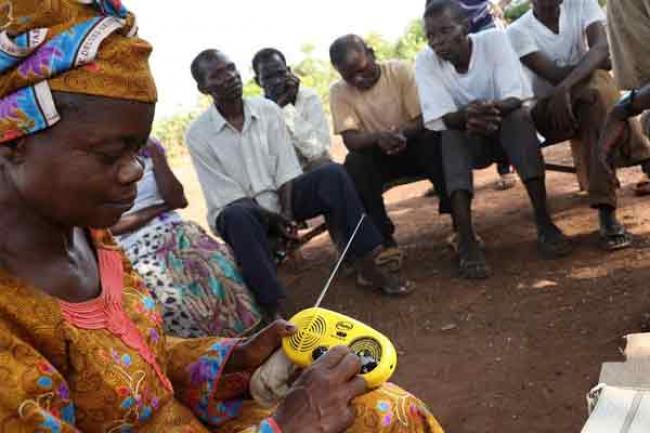Just Earth News 24 Feb 2017, 04:09 am Print

OCHA/Gemma Cortes
“It is unacceptable for civilians to pay the price for rivalries between armed groups because of their religious believes or political affiliation,” said the Acting Humanitarian Coordinator for CAR, Aboubacry Tall, calling on on parties to the conflict in the Ouaka and Haute Kotto provinces to respect and uphold international humanitarian law.
According to the Office for the Coordination of Humanitarian Affairs (OCHA) in the country, since the beginning of 2017, there have been deadly clashes between rival armed groups in the Haute Kotto and Ouaka provinces to the detriment of civilians who are forcibly displaced.
The town of Bambari, the capital of Ouaka province, currently has 45,000 displaced persons out of a population of 160,000. Since the end of November 2016, about 20,000 new IDPs have been registered. The town of Maloum (63 kilometres north of Bambari), recently received an estimated 4,000 newly displaced persons due to clashes between armed groups in the Haute Kotto and Basse Kotto provinces as well as in the Ouaka province (Ndjoubissi, Ndassima, Ippy , Belengo, Mbroutchou and Atongo-Bakari).
In order to ensure the provision of assistance in compliance with the humanitarian principles of neutrality and impartiality, Tall reminded parties to the conflict of their obligation to “ensure unimpeded humanitarian access with no conditions.” He strongly urges armed groups not to obstruct “the free movement of civilians or humanitarian actors that humanitarian assistance can be deliver to the people in need.”
In a news release issued earlier this month, the UN Multidimensional Integrated Stabilization Mission (MINUSCA) had stressed that two factions of the ex-Séléka armed group, namely the FPRC (Front Populaire pour la Renaissance de Centrafrique) coalition and UPC (Mouvement pour l’Unité et la Paix en Centrafrique), represent a threat for civilian populations and that UN peacekeepers will respond in case of violence.
Clashes between the mainly Muslim Séléka rebel coalition and anti-Balaka militia, which are mostly Christian, plunged the country of 4.5 million people into civil conflict in 2013.
- Trump signs 10% global tariff, says it takes effect ‘almost immediately’
- BJP wins a seat in Bangladesh — But not the one you think!
- Meet Shabana Mahmood: Could she take over as UK’s first Pakistani-origin Muslim PM?
- Dalai Lama's Office breaks silence on Epstein claims
- Russia says suspect in shooting of GRU Deputy detained in Dubai





-1763561110.jpg)
